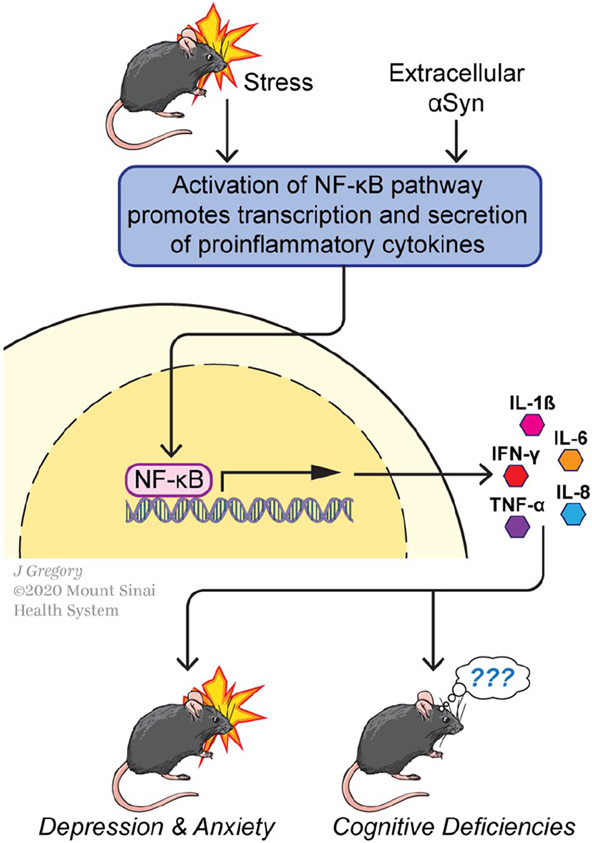Figure 4.
Nuclear factor κB (NF-κB)-mediated transcription may represent molecular convergence of Parkinson’s disease (PD), behavioral stress, and aberrant immune signaling. (Top) The NF-κB transcriptional pathway can be activated by several behavioral or molecular signals, including stress and extracellular accumulations of αSyn fibrils. (Middle) NF-κB-mediated transcription drives synthesis and secretion of a number of inflammatory cytokines in CNS microglia and in cells of the peripheral immune system. (Bottom) Inflammatory cytokines (interleukin [IL]-1β, IL-6, IL-8), interferon-γ, tumor necrosis factor-α [TNF-α]) gain access to the brain and can modify circuit function and synaptic plasticity, participating in molecular changes that lead to psychiatric (depression and anxiety)-like behaviors or, more speculatively, cognitive deficits in mouse models. See text for further details.

